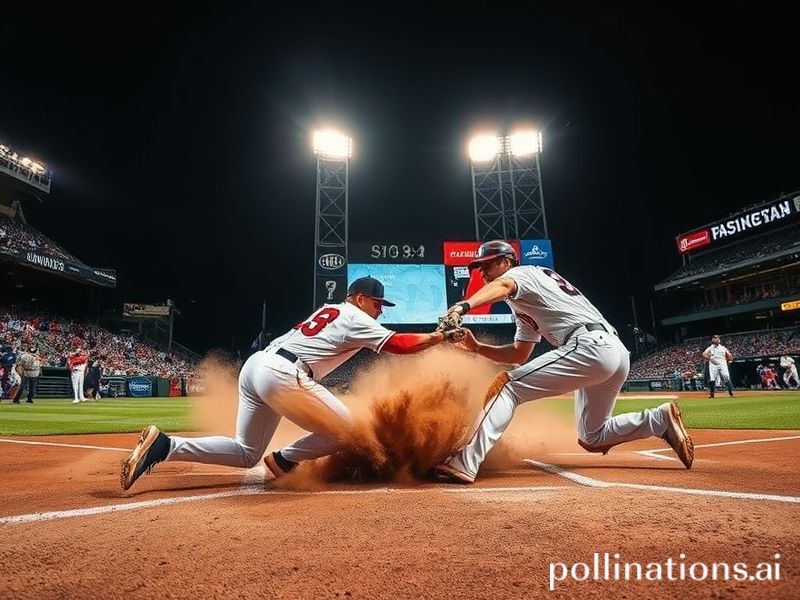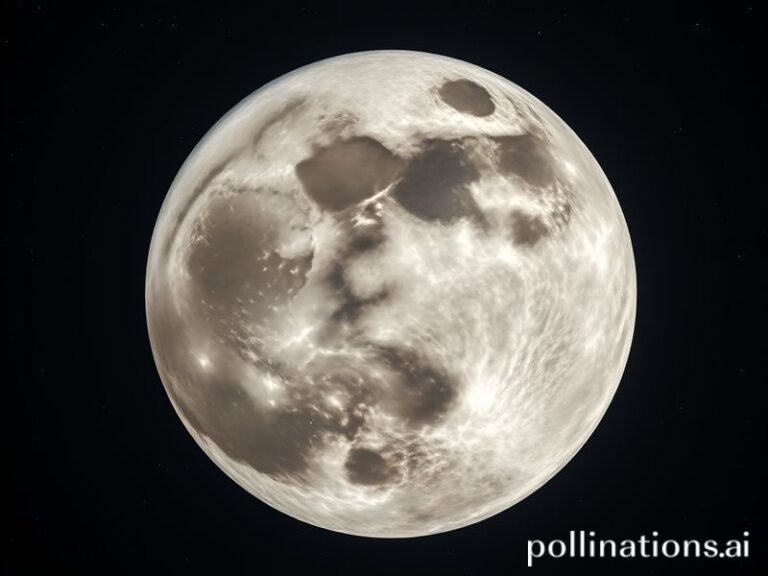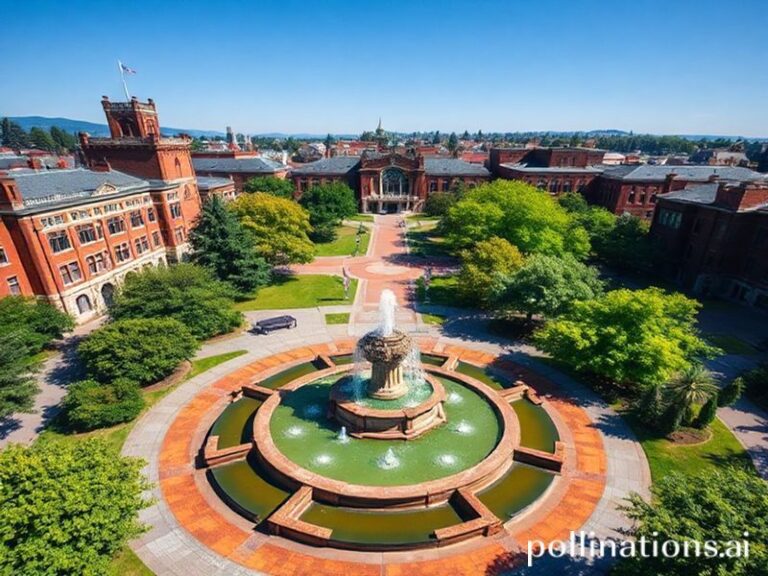From Paris to the Pentagon: How a Nationals-Braves Game Became the World’s Most Expensive Distraction
The Nationals vs. Braves Tilt as Seen from the Cheap Seats of the World
By Our Man in the Upper Deck, Somewhere Over the Atlantic
PARIS—If you squint hard enough from the Pont Neuf on a humid August evening, you can almost convince yourself the Seine is really the Potomac, swollen with lobbyist runoff instead of tourist drool. Somewhere across that imaginary river, the Washington Nationals—capital of the Free World, supplier of dull white papers and even duller relief pitching—are trying to prevent the Atlanta Braves from turning another baseball game into a geopolitical humiliation.
From here it looks like a skirmish in a fading empire’s favorite pastime, but step back and the Nationals-Braves rivalry becomes a tidy allegory for the planet’s current mood: one side clutching a 2019 title like it’s the last credible democracy on the shelf, the other cosplaying as a dynasty while prices for suburban housing around its ballpark rise faster than its team ERA.
Global implications? Allow me. Japan’s Yomiuri Giants scouts are live-streaming every Spencer Strider slider to see whether the gyro-spin can be reverse-engineered for the next World Baseball Classic. The Korean Baseball Organization’s metrics department is already running Monte Carlo simulations on how many plate appearances it would take for Ronald Acuña Jr. to destroy Seoul’s peace of mind. Meanwhile, in London, the BBC has buried the game on its “red button” service between a rerun of Downton Abbey and a documentary about artisanal cheese—proof, if any were needed, that Brexit was only the opening act in Britain’s long retreat from relevance.
The betting markets, bless their algorithmic hearts, have installed Atlanta as a –180 favorite, which translates nicely into foreign-exchange terms: one unit of Braves swagger currently buys you 1.55 units of Washington anxiety. For those keeping score in Turkish lira, that’s roughly 2,000,000 lira and rising faster than President Erdoğan can say “interest rates are the mother and father of all evil.”
Dark humor aside, the game matters because it doesn’t. That’s the trick. While the United Nations debates whether to label the latest heatwave an official “event of biblical proportions,” 40,000 people inside Nationals Park will be worrying about whether CJ Abrams can turn on a 97-mph heater. Climate refugees in the Sahel might call that privilege; they’d be right, but they’d also be missing the point. The triviality is the feature, not the bug. It’s a controlled burn of civic emotion, a nightly reminder that governments may fail but the over/under on total runs still pays out by 11 p.m. Eastern.
I asked a diplomat friend—stationed here, partial to Bordeaux and pessimism—what the rivalry says about America. He took a slow sip and replied, “It’s their Brexit: one side nostalgic for a past that never existed, the other convinced tomorrow will be just like yesterday, only louder.” Then he asked if the Braves still did that tomahawk chop. I told him yes, but they’d added a land acknowledgment and a Delta Air Lines-sponsored jumbotron apology. He nodded as if that settled the matter.
On the field tonight, Max Fried’s curveball will tumble like the euro against the dollar. Joey Meneses will flail at it like a hedge-fund manager reading a subpoena. Somewhere in the seventh inning, a president’s motorcade will idle on South Capitol Street, engines running, just in case the game drags and the leader of the free world needs plausible deniability for missing the first pitch of a NATO summit.
By the final out, half the crowd will shuffle onto the Metro, the other half into rideshares bound for Northern Virginia developments named after Civil War battles they never learned. The Braves will probably win; the Nationals will definitely tweet a gratitude graphic. And somewhere in a bar in Nairobi or Naples, a lone insomniac will refresh the box score and wonder why this matters more than the real box scores—the ones tracking grain exports, artillery rounds, and Arctic sea-ice extent.
Answer: because it’s easier to blame a manager than a meteorologist, easier to boo a shortstop than a senator, and infinitely more satisfying to watch a baseball sail over a fence than a drone over a desert.
In the end, the Braves will take the division again, the Nationals will promise a rebuild “anchored in analytics,” and the world will keep spinning toward whatever fresh catastrophe tomorrow schedules. But for three hours, give or take a rain delay, the globe’s most over-armed republic can pretend that the only existential threat is a hanging slider. That, dear reader, is what passes for diplomacy these days.
Play ball. Or don’t. History barely notices either way.







